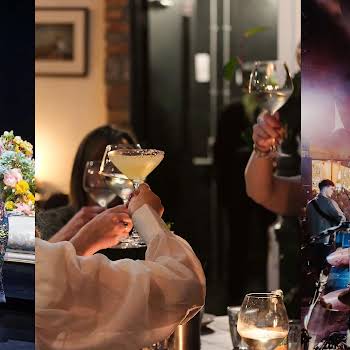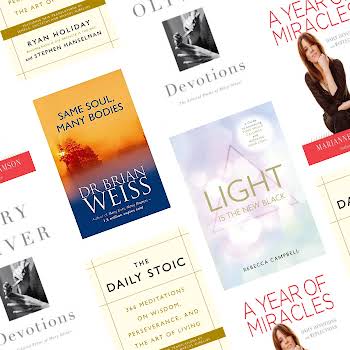
By Jennifer McShane
12th Jul 2020
12th Jul 2020
When you’re a night owl, often staying awake into the small hours is par for the course. Or what if you simply can’t relax enough to wind down into a restful slumber? If for whatever reason, you find yourself staying awake, these books are worth reading into the night. Resident bookworm Jennifer McShane recommends six favourites she’s re-read many times

In Sarah J. Harris’ The Colour of Bee Larkham’s Murder (Harper Collins, approx. €14.99, out now), 13-year-old Jasper has synaesthesia. His world is painted in a series of colours no one else can see – all sights and sounds bring up a different hue. He has a different shade for every day of the week: for the box of cereal, the schoolboy’s dog. This would be fine, only he’s just discovered a new colour; one he’s never seen before – the colour of murder.
It’s ice blue with glittery edges and jagged silver icicles. He’s sure something has happened to his neighbour Bee Larkham but no one else is taking her disappearance seriously. At least, at first. But he can’t quite remember what happened with the screams and the pie… and the knife. A vivid, engaging depiction of life with autism and a remarkable protagonist.

Why yes, I am re-reading this again. In Sally Rooney’s lauded, Man Booker-nominated Normal People (Faber & Faber, approx. €13.99, out now), she has written a novel even sweeter than her first. School friends-with-benefits Marianne and Connell are, from the outside, opposites who attract and begin a romance that takes place in relatively ‘normal’ settings – in a bedroom, at a party. Connell’s mother is Marianne’s cleaner yet he is popular and she is not.
He struggles despite this and when the tables turn and college years arrive, she blossoms while he is simply tolerated by those around him. But you root for them always, for their love story – therein lies Rooney’s skill. It’s a story that is a slow burner, but no matter the deliberate pace of the narrative, you care about them and so keep turning the pages. Simply put, it’s superb – and about so much more than a love story. Class, wealth, power and an innate understanding of the mistakes we make as human beings; it’s all here.

In Katie Atkinson’s Transcription (Doubleday, approx. €22.99, out now), it’s impossible not to bond with Juliet Armstrong. When we first meet her in 1940, she is a wide-eyed and naïve girl, plucked almost straight out of school to become a spy for the British during WWII. She is to type secret conversations between Nazi sympathisers, yet when we meet her again years later, she is a woman resigned to a slightly boring job at the BBC. And we feel we know her.
But, she’s not quite done with her secret agent days. It may seem like a simple story told very well (and it is) but it’s the book’s denouement that elevates this story to one truly wonderful. The rug gets pulled out, so delicately, that you’ll want to start reading again almost straight away. The ending is one of the best I’ve read in ages.

Any book deemed am ‘easy’ read tends to get a bad rap, but every so often one will land that makes me realise they are truly good for the soul. Kathryn Hughes’ The Key (Headline, approx. €9.99, out now) is one of those books. In 1956, Ellen Crosby arrives at Ambergate County Lunatic Asylum for her first day at work as a nurse where she meets Amy, a young girl committed by her father. Amy is left at the hands of a physician keen to try find her a ‘cure’ for mental illness.
Decades later, now 2006, we meet Sarah. Wandering the abandoned corridors of the asylum, she stumbles upon a suitcase that belonged to a female patient fifty years earlier. Slowly she begins to piece together a story of tragedy and a love lost that only she may be able to put right. An emotional, utterly affecting read that you’ll be sad to finish.

In All the Beautiful Girls by Elizabeth J Church (Fourth Estate, approx. €13.99, out now) the story is very reminiscent of Valley of the Dolls. Born Lily Decker, she transforms into Ruby Wilde a beautiful showgirl with a troubled past who becomes the toast of Las Vegas in the 1960s.
However, she soon discovers riches and the bright lights can’t heal the scars of her youth; a tragic accident, a distant aunt and an uncle who gets disturbingly close (that’s a trigger warning for the book’s more graphic moments). But it’s so gorgeously written that even when it gets dark, you’ll still want to turn the pages. An absorbing read that offers a twist to a tried-and-tested narrative.

In Grist Mill Road (Tinder Press, approx. €8.99, out now), author Christopher J. Yates centres on a brutal and shocking crime. This is not a whodunnit, but a whydunnit. Why was 13-year-old Hannah tied to a tree and shot repeatedly with a BB gun by a teenage boy, Matthew, who then left her to die? They were supposed to be just playing in the woods. Hannah was terrified. So why did Patrick, who silently witnessed the horror, do nothing to stop it occurring?
Years later, and the havoc of the past still can’t be forgotten in the future. All three will meet again as adults, Patrick married to Hannah. But she still doesn’t know the burden of the weight he continues to bear; that he did nothing to stop Matthew that day. That he knows the truth. But the crime is less straightforward then it appears. Brilliantly twisted, this is one heck of a sinister page-turner.
Main photograph: Pexels
Read more: 5 marvellous must-reads to add to your reading list
Read more: 4 brilliant books made for bedtime reading
Read more: #IMAGEReads: 4 books we have on our social distancing must-read lists























